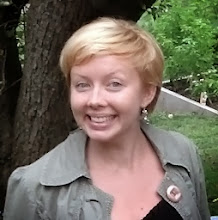
After swearing in as an official Peace Corps Volunteer, you are assigned a post for two years of service. I was assigned to the village of Kaboli. During my first year in Kaboli, I initiated many projects—working with savings groups, potential entrepreneurs and small business owners. For instance, I successfully started three continuing Village Savings & Loan groups. However, many of these initiatives ended in disappointment or had stalled indefinitely. The butcher shop—a construction project that was initiated by my predecessor—still has no foundation.
So when one of my fellow volunteers decided to leave early and asked me if I would like to replace her in Kpalimé, I seized the opportunity. In Kpalimé, she worked with a cooperative of coffee growers that sought larger profits through selling roasted coffee instead of simply exporting the raw green beans. My friend was a bit anxious because she did not want to abandon the group at a crucial time. They had gained a significant presence in the market, but now was the time to strengthen their foundation and expand their market.
I had made many good friends in Kaboli and I enjoyed my year of service there. However, I wanted to work more with entrepreneurs and I wasn't getting that experience in Kaboli. I asked my Country Director if I could transfer and I moved to Kpalimé at the end of October.
The heavy flooding that Togo suffered in August severely impacted its infrastructure in the south. The bridges supporting the only national highway were swept away, and trucks were forced to take a detour on the road from Atakpame to Kpalimé and then Kpalimé to Lomé. These roads were not maintained to handle such traffic and deteriorated further. The trip from Kaboli included the road from Atakpamé to Kpalimé. Fortunately, my friends from Kaboli offered to help me move. So we packed all my stuff into a van, then piled more on top, and we left Kaboli at 7:30 am.
Around lunchtime the engine started overheating. We stopped periodically to turn off the engine and poor water on the radiator. I wished that I had known the word for coolant in French, but I'm not sure if it would have been available even if my driver knew what it was.
Finally, around 8pm and only 35 kilometers from our destination, the engine gave out and we could go no further until the radiator was replaced the following morning. We stopped right outside a small village—where there were no hotels.
My friends from Kaboli were almost as weary as I was of this small Ewe village – as they were from a completely different ethnic group and did not speak the language. Yet somehow we managed to scrounge enough food to satisfy any hunger pangs for the night. We then set some mats out on the side of the road and sat under the stars as I shared with them pictures from America on my laptop.
Though my friends said that the breakdown was a bad omen and that I was meant to stay in Kaboli, I thought of it more as a good opportunity for me to spend some time with my friends before finally moving to Kpalimé.
The driver's cousin who lived in Kpalimé brought a new radiator the next morning. We finally arrived in Kpalimé at noon and I settled in to start my second year as a Peace Corps Volunteer.


No comments:
Post a Comment